
(Left to Right) Panelists David R. Hernandez, Eddie Martinez, Emma Hernandez and Christina Sanchez. Photo by Michelle Zacarias
Southeast Los Angeles (SELA), a region that encompasses cities like Huntington Park, Bell, South Gate, Lynwood, Maywood, Bell Gardens, Cudahy and Walnut Park, was the focal point of this month's Diálogo Series event, a regular convening space for discussion and dialogue on the most pressing issues for Latinos and community leaders.
The second Diálogo session, which took place at the historic Hub Cities Consortium in South Gate, was titled “The Future of Southeast L.A.” and focused on the social, economic, environmental and political challenges facing Southeast L.A, as well as the re-envisioning and promise of rebirth that community leaders and new media outlets foresee for the close future of the region.
On Thursday, May 30, CALÓ News and the Latino Media Collaborative (LMC), in partnership with the SELA Collaborative, hosted approximately 50 people, including journalists, artists, philanthropists and policymakers, all interested in creating new initiatives for the betterment of Southeast L.A.
Since its founding in 2019, LMC, the parent organization of CALÒ News, has worked to develop high-impact media and, at the same time, create outreach campaigns in partnership with the Latino media sector to advance an informed and highly engaged Latino community.
Thursday’s Dialogo featured a panel discussion led by Martin Albornoz, general manager of CALÓ News and Dr. Wilma Franco, executive director of SELA Collaborative.

Dialogo featured a panel discussion led by Martin Albornoz, general manager of CALÓ News. Photo by Michelle Zacarias
The panel included remarks from SELA residents and community leaders, including Christina Sanchez, vice president of public affairs at AltaMed Health Service; Emma Hernandez, chief executive officer of Southeast Community Development Corporation; Eddie Martinez, executive director of the Latino Equality Alliance; and filmmaker and musician David R. Hernandez, president and executive director of NightFlare.
Dr. Franco, whose organization has worked to strengthen the capacity of the nonprofit sector and increase civic engagement in Southeast L.A. since 2011, said events like the Diálogo Series are immensely important for the narrative change of the region and the empowerment of its residents.
She called the Diálogo Series collaboration with LMC and CALÓ News a “synergy energy,” which, according to her, came afloat with the intention of co-creating a space where there was real listening and dialogue with comunidad.
“Why reinvent the wheel? Why not collaborate with each other and bring this to a place together that can really bring different perspectives to the table regarding the future of SELA?” she told CALÓ News. “Conversations like these are what tend to spark real innovation and new ideas.”
Panelists also talked about intergenerational empowerment and civic engagement as crucial ways to move legislation and catalyze tangible change in SELA. According to Dr. Franco, through the SELA Collaboarative, data shownn that the region is home to one of the biggest zero to 21 year-old populations in the state, as well as a very large elderly population.
“What serves our senior community is going to be very different from what our youth need and really thinking about what that looks like in the future and how we could also bridge that gap between our elders and our youth,“ Dr. Franco said. "Even though many of the panelists today are older, they're also thinking about how to create the future for the upcoming generations.”
Hernandez said she is proud to see youth in SELA being active leaders in their communities, but that more youth development programs need to be created and funded. “I want to make sure that the young people today know it’s okay to go away for college like some of us did, and then come back with all that knowledge and all those tools, and then give back to our community,“ she said.
At the Southeast Community Development Corporation, a nonprofit organization that focuses on digital equity in Southeast L.A., Hernandez has brought needed resources such as adult digital literacy classes that connect SELA residents to low-cost internet and hotspots. “That's one of the things that we strive for: to be a program where youth can come and yes, they're learning how to use computers, robotics, coding and all those different things, but we're also teaching them [to] have pride in our community and how to be civically engaged,“ she said.
Martinez, who, apart from being the executive director of Latino Equality Alliance (LEA), an organization advocating for the wellness of the LGTBQ community, also worked with The Wall Las Memorias Project and is a council member for the City of Huntington Park.
“It's important that we give space for leadership development, especially among young folks, because they're the ones who are going to be the next leaders; they're the ones who are going to step up and advocate for folks like me, you and the elderly,” he said. “As a leader of a non-profit [organization], I try to make sure that my young staff have places to make decisions. I don't have to make all the decisions. I have faith and trust that they can make the best decision, and that's how you foster your leadership.”

Participants and attendees were able to ask questions to the panelists. Photo by Michelle Zacarias
One of the most important topics of the night was the Southeast L.A. identity, which has helped uplift the region, nurture emerging leaders and pioneer a model for regional cooperation that places community voices at the forefront.
Panelists and community leaders agreed that although Southeast L.A. residents had shared experiences based on their community, social issues and favorite places to visit, they did not have a term that they as a community and region could identify with. “Now I'm hearing more and more folks identifying as being SELA residents, and then with that comes the pride of being from Southeast L.A. Growing up, I didn't see that, we didn't have a collective identity. We [were] usually from a specific city in SELA,” Hernandez said.
For years, the SELA region, whose population is majority Latino, has been classified as a “news desert,” a place with limited access to credible and comprehensive news and information. Community members and residents argue that there has been a vast underreporting of important issues, and when there is reporting, it's often an elevation of negative coverage. “When reporting in communities like SELA, the thing to do is build trust. [As a reporter], you've got to tell good stories too; you've got to balance it out with the good stories,” Hernandez said.
Sanchez, who before working for AltaMed worked in public relations, broadcast media and Spanish-language media including Univision’s Channel 34, believes journalism and media advocacy are important to bring change forward for SELA.
“I think it's important to nurture our journalists and to be a journalist is to really fact-check, to get all sides of the story... and make sure that your sources are good ones,” she said.
David R. Hernandez, who was representing SELA’s innovative and creative residents, talked about the importance of art and artivism in creating special change. David R. Hernandez is a filmmaker and musician from Huntington Park.
He is also currently a media partner for the SELA Collaborative, which together launched the campaign "Our SELA Region," which highlights how non-profits and SELA cities work together to bring positive change.
“An artistic voice is very important, and once we start making that mark, it's when our own city officials start being a part of those creative spaces,” he said. “As artists, we don't like to be very political, but in a sense, we're political. As artists, many of us are not outspoken and loud but with our art, we tell others they need to hear us, too. Our poetry says that with words and filmmaking, we can tell a story about what's happening in our community.”

Dr. Ciriaco “Cid” Pinedo, president and chief executive officer of the Mexican American Opportunity Foundation, delivering closing remarks. Photo by Michelle Zacarias
Closing remarks were given by Dr. Ciriaco “Cid” Pinedo, president and chief executive officer of the Mexican American Opportunity Foundation (MAOF), who spoke about the importance of funding initiatives that help the reporting and media access in the region of Southeast L.A., as well as the economic and social prosperity of the residents.
“I'm a firm believer that access delayed is access denied. I commend the leaders that are here today. For [having] the courage to run for office because it is not easy and the courage to lead discussions about governmental relations,” Pinedo said. “What are you going to do to help your community? How are you going to help your people? That's my question for you. If you're doing it, how will you continue to do it? How will you put the needs of others first? The example you set is the work that you are all doing,” he said, referring to the audience.
For additional information on the Diálogo Series and if you would like to donate to LMC's effort to advance an informed and highly engaged Latino community through a thriving Latino media sector, visit latinomedia.org/2024-dialogo-series.

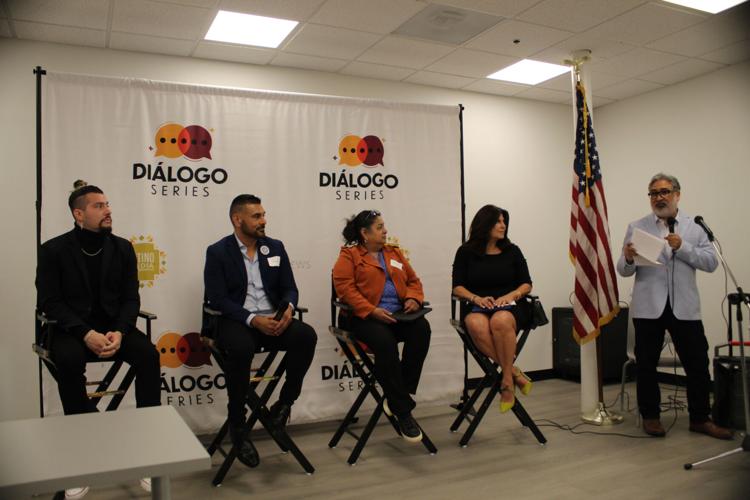
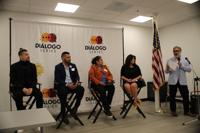
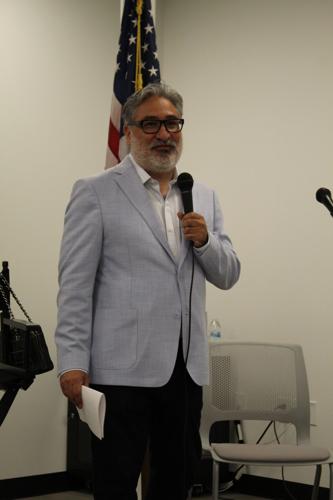
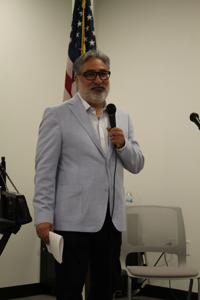
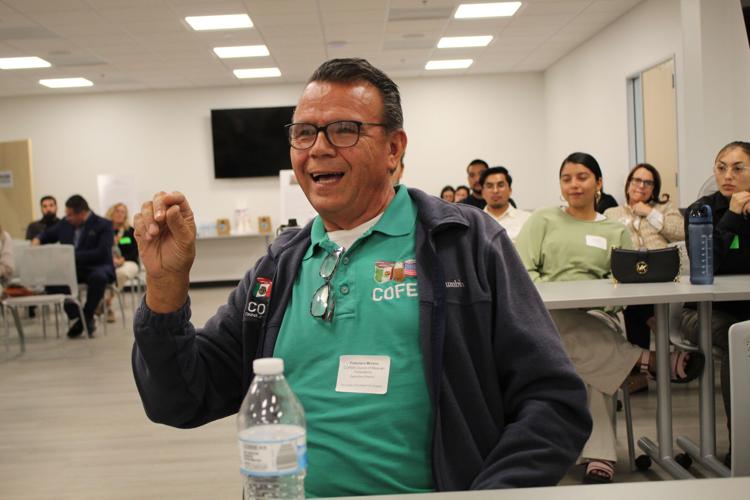
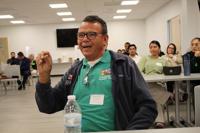
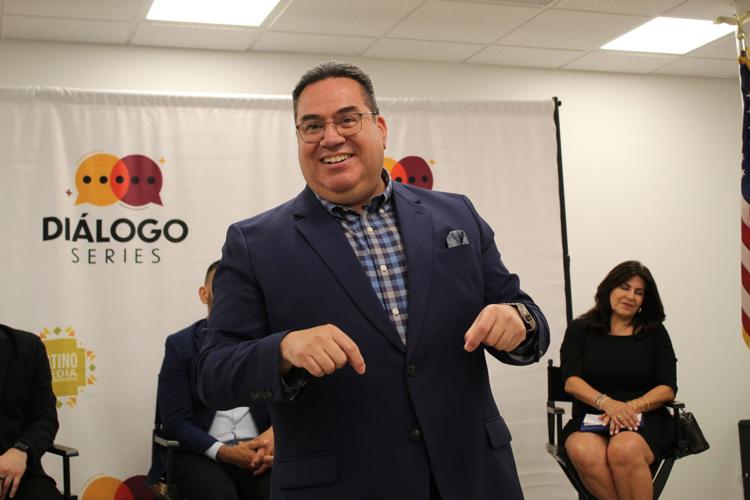
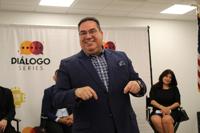

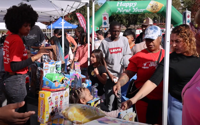

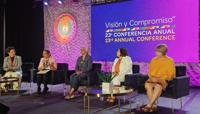



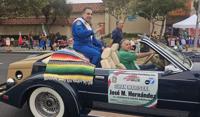
(0) comments
Welcome to the discussion.
Log In
Keep it Clean. Please avoid obscene, vulgar, lewd, racist or sexually-oriented language.
PLEASE TURN OFF YOUR CAPS LOCK.
Don't Threaten. Threats of harming another person will not be tolerated.
Be Truthful. Don't knowingly lie about anyone or anything.
Be Nice. No racism, sexism or any sort of -ism that is degrading to another person.
Be Proactive. Use the 'Report' link on each comment to let us know of abusive posts.
Share with Us. We'd love to hear eyewitness accounts, the history behind an article.